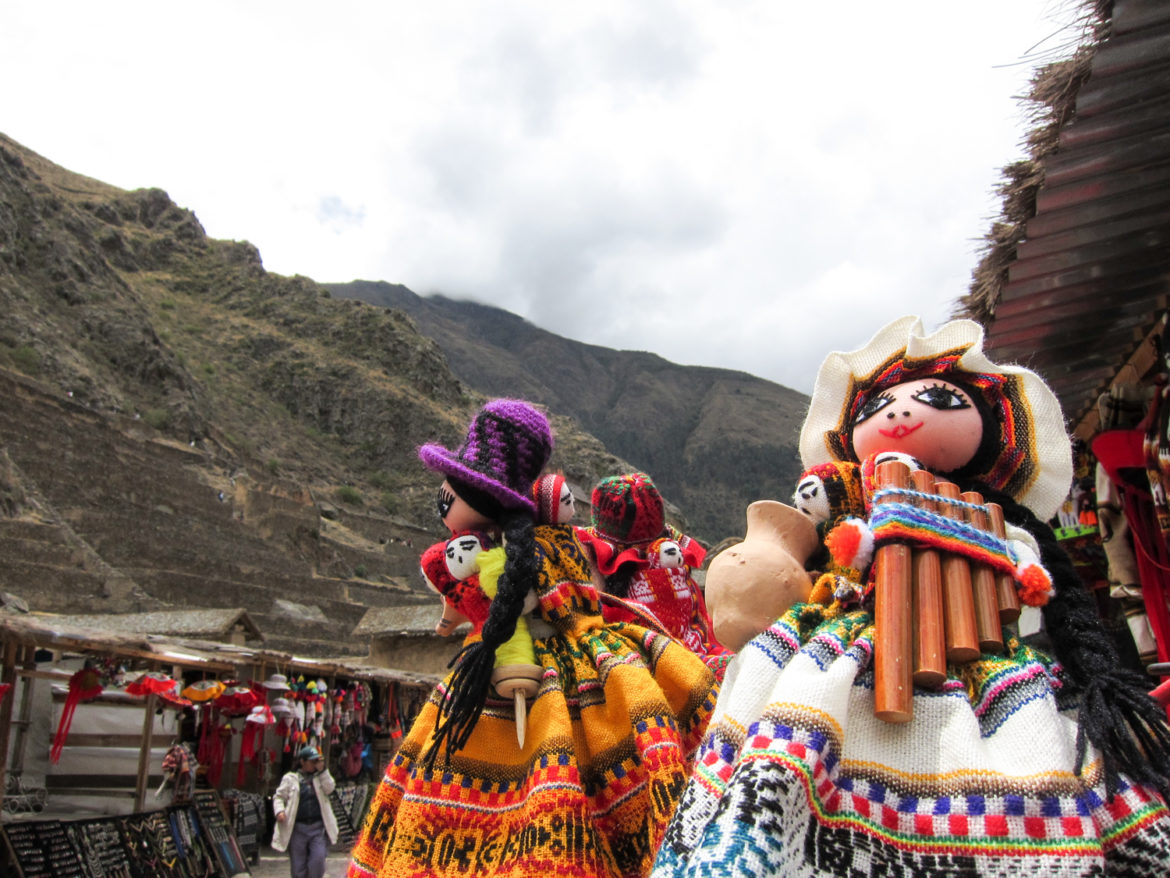Ollantaytambo is a small town in the Sacred Valley of the Incas offering a glimpse into quiet, Peruvian country life.
We stopped through Ollantaytambo on our way back from Machu Picchu. We had about four hours to check out the village before catching a collectivo (shared community van) back to Cusco en route to Arequipa.
Brian was determined to partake in authentic Chicha de jora, a fermented corn beer dating back to Incan times. For locals, Chicha isn’t just a drink, it’s a way of life. It symbolizes their connection to the land. Throughout South America, whether locals are drinking Chicha or a store brand beer, it’s typical for them to pour a little out onto the ground. This gesture is an indigenous blessing of sorts to honor Pachamama, the Earth Mother. There’s something so sweet about witnessing people in this mindful action. Taking a moment to say thanks and show gratitude as those precious few drops of alcohol hit the earth.
After visiting an arts and crafts market, we hiked up the terraced hillside of an archaeological site of Incan ruins.
From the top of Pinkalluna, we got a bird’s eye view of the perfectly gridded town of Ollantaytambo below. We marveled at the ancient watering system, still functional, that remains in use today. While enjoying the scenery, Brian began chatting with a local family about his interest in finding a local Chicheria. As luck would have it, they knew of one and proceeded to tell us (in rapid Spanish) how to get there.
Once we sort of understood the directions, off we went. We passed by little girls washing clothes in the babbling water system. A local vendor at a colorful fruit market gave us a friendly smile. And we witnessed some unlucky guinea pigs awaiting their fate in pins behind a father/daughter owned restaurant. Roasted guinea pig is known as “Cuy” and a staple of Andean cuisine.
Eventually, we found the telltale sign of a classic Chicheria: a red plastic bag tied to the end of a stick above a doorway.
Slowly pushing on the door, it creaked open and we peeked inside. The chatter we initially heard immediately turned to silence. Not knowing if we were welcome or not, we remained frozen like statues. Finally, we heard a voice say “pase pase.” An older man with kind eyes came into view and gestured us to come closer. Others began to repeat after him, “pase pase,” and so we stepped forward until we were completely inside.
As our eyes adjusted to the lack of light, we found ourselves in a basement-like area. The no-frills environs consisted of a low ceiling, stone walls and a dirt floor. A dozen or so wide-eyed locals sat at long wooden tables, likely wondering how we got there. In the corner, a grandmother stirred what could only be the ubiquitous Chicha in a huge vat.
As with any awkward social situation, we did what most people would do: head straight to the bar.
Brian approached the elderly woman and asked for “hola madame – una, por favor.” Charmed and surprised by his Spanish, she gently ladled out a cup of the mushy mixture (just 50 cents a pop.) We’d later learn that for many Andean women, the making and selling of Chicha carries a certain amount of political power and prestige. While men (and even children) are often involved in making Chicha, women are the ones who control production and distribution.
A man close to us scooted over on his bench and motioned for us to join him. The room remained silent as everyone watched us take a seat. In Spanish, the man asked Brian where he was from and as the two of them began a dialogue about everything from farming to beer, a low murmur eventually filled the room again.
I sat taking in the scene. Brian and the man started laughing. Despite the difference in age, nationality, language, and culture, they had somehow managed to make a connection. I realized then that this little dwelling was really no different from a local dive bar back home. A place for people to come together, relax, share stories, and simply enjoy each other’s company.
When it was time to go, we thanked everyone and waved goodbye, like old friends. They nodded their heads and offered a smile, amused by the two Americans who came to Ollantaytambo one day and stumbled on their humble Chicheria.

